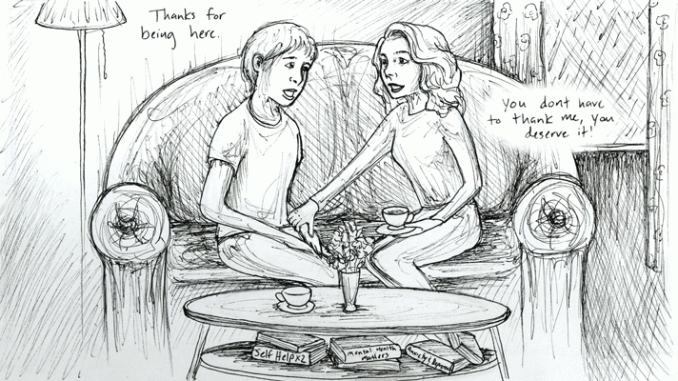
Mental illness. It’s something that affects many of us: according to the National Alliance on Mental Illness (NAMI), one in every five Americans suffer from mental health issues at one point in their life. But it’s also something shrouded in stigma and misinformation, which forces many people living with mental illness into silence or shame.
High-stress, fast-paced environments like college or university campuses often foster mental health issues, such as anxiety or depression. The sheer amount of responsibilities young adults must juggle — classes, jobs, extracurriculars, sports, social interactions and relationships — can add to this stress. For many people with mental illness, symptoms first manifest between ages 18-22, according to NAMI. This increases the likelihood of us or one of our peers experiencing mental illness during our time at college.
For most of us, finals week is a major source of stress and anxiety. However, it is important to realize that what may be a temporary struggle for most of us could very well be an everyday reality for people who live with mental illness.
In honor of May being Mental Health Awareness Month, we at The New Paltz Oracle would like to extend our support to everyone whose life has been touched by mental health issues. Mental illness manifests in many different ways, but for many who experience mental health issues, symptoms include panic attacks, overwhelming anxiety or feelings of hopelessness. We urge anyone who experiences any of these symptoms to reach out to loved ones, friends or counseling professionals for guidance and support.
We encourage our readers to seek healthy, safe methods of coping with mental illness, such as therapy, counseling or prescribed medication, instead of dangerous coping tools like alcohol or drugs. We also urge our audience to remember that there is always time for self-care, rest and relaxation, no matter the situation. Our health — mental, physical and emotional — should be the utmost priority.
There is no shame in struggling with mental health issues. Overwhelmingly negative portrayals of people with mental illnesses are widespread across the media, which contributes to shame and stigma surrounding mental health issues. Unfortunately, people who feel shame about grappling with mental illness may feel forced into silence and unable to confide in those close to them.
We at The New Paltz Oracle would also like to emphasize the importance of starting a healthy, supportive dialogue about mental illness. Open and honest conversations about mental illness can help destigmatize mental health issues. Someone in your life — be it your friend, your professor or a family member — cares about your wellbeing. Of course, those fighting mental illness should only talk about their struggles when they feel safe and ready to do so. Opening up to people we trust about our struggles can be extremely validating and helpful.
On the receiving end, people whose loved ones turn to them in their time of need should be receptive and willing to help. Confiding in a friend about such a sensitive topic can be scary, so no one should feel slighted or offended if a friend chooses not to open up about any experiences with mental health issues.
Students at SUNY New Paltz can reach out to the Psychological Counseling Center at 845-257-2920 for help coping with mental illness. For students who grapple with mental illness and have disabilities, resources are available at the Disability Resource Center (845-257-3020).
